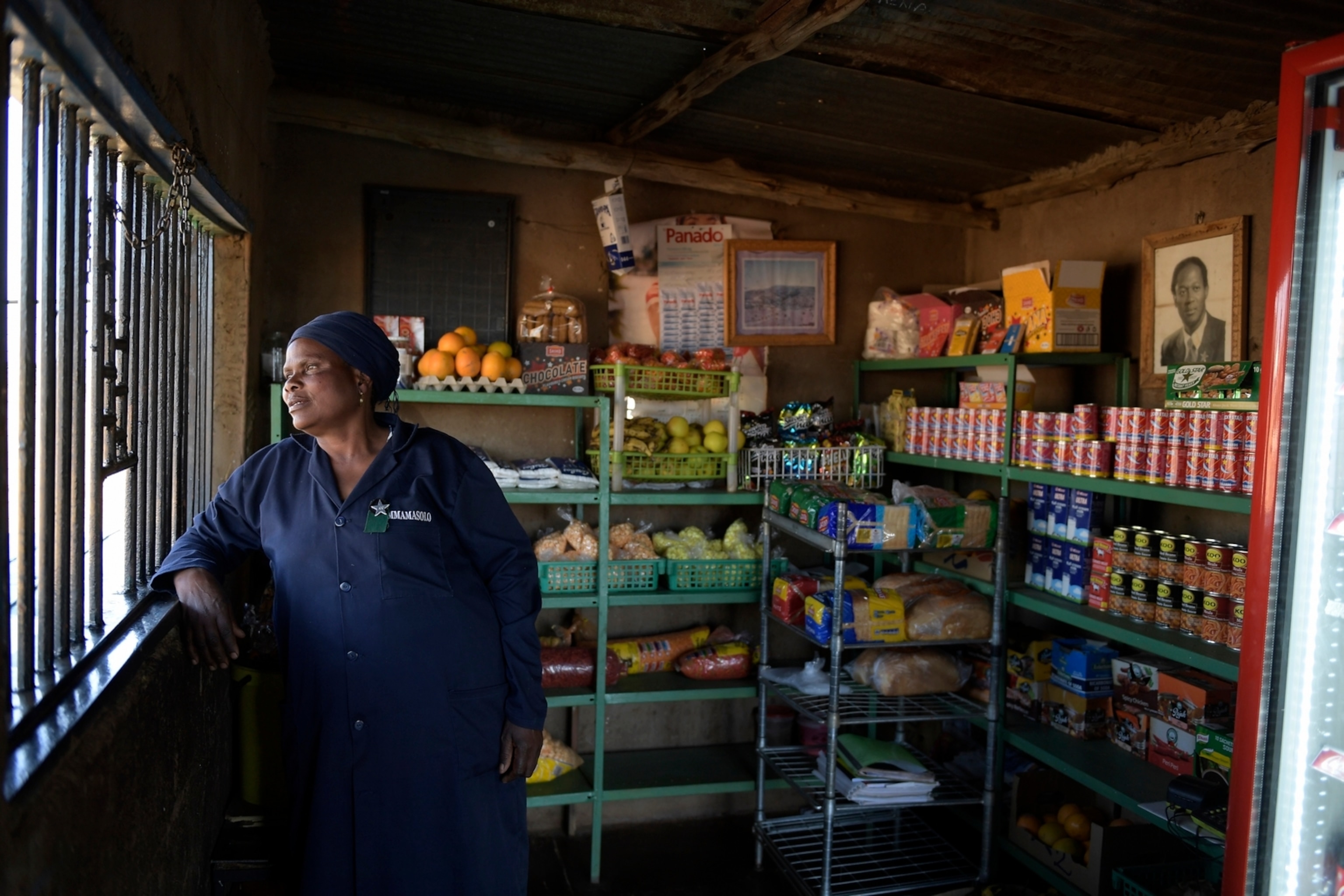
Africa’s women mean business
Women have long been underestimated and underutilized in many societies, including across Africa. Now, through hard work, global commitments, and localized training initiatives, women entrepreneurs are making their mark on the economies of southern Africa.
There’s a lot of space in Namibia. The name “Namib″ actually means “vast space.″ It’s somewhere that having a car is a benefit and, just as much so, a mechanic you can trust. Sunny-Girl Hauwanga grew up around cars, and has worked hard to make them her livelihood.
At Mina Auto Repair in Otjiwarongo, Namibia, Sunny-Girl specializes in panel beating and painting, and she loves her job. “That is how I grew up. I really love to deal with cars,” she says. And while her customers appreciate the great work she does, some are surprised and impressed by the fact that this is her business—especially because she is a woman. “They feel proud of me because I’m doing [something] different from other women.” Working in the automotive industry―or running a business―is not commonplace for women in Namibia. But it is starting to become more common as Sunny-Girl joins a growing number of women micro-entrepreneurs being helped by corporate-funded training initiatives.

Over the last 40 years, a number of commitments to improving gender equality have been made across the globe, with moves by the United Nations to implement supportive protocols such as the Convention on the Elimination of All Forms of Discrimination Against Women (CEDAW). In 1995, following the conclusion of the Fourth World Conference on Women, a new plan emerged—the Beijing Platform of Action—to address the key areas that needed improving, namely providing access to education and reducing poverty along with political and economic inequality.
For a time, these commitments mostly benefitted women in the wealthier, Western regions of the world, due in part to gender inequality exacerbated by poverty. In sub-Saharan Africa in particular, money is still one of the biggest obstructions to improving women’s recognized value in society. Women simply have less capital, with only 37 percent having a bank account, compared to 48 percent of men. Despite already low percentages for both women and men, the gap is still widening, even with an increase in financial support available. What’s more, in sub-Sahara Africa, the lack of integration of women into their economies has a severe financial impact across the region, with a combined 95 billion US dollars in lost productivity every year. It seems that when women aren’t able to contribute economically, not only is it socially and morally unjust, it frankly doesn’t make fiscal sense either.
Fortunately, enshrined within the African Union Gender Policy is a renewed commitment from African governments to provide opportunities to empower women and ensure their participation in public and economic life. It’s an attitude that opens up the door to private-sector organizations that want to leave a lasting, positive legacy on the world. De Beers Group, for example, launched a program last year in partnership with UN Women to improve the livelihoods of women micro-entrepreneurs in the diamond-producing countries of Botswana, Namibia, and South Africa. Their AWOME (Accelerating Women-Owned Micro-Enterprises) program is a capacity-building initiative that provides training for women micro-entrepreneurs like Sunny-Girl—equipping them with business management skills and building their abilities to grow their businesses.

“We have discovered that it is very important to be a woman and do as much as you can for the community, for your family … We used to take men as the people … responsible for everything, but as for this [AWOME] training, it has taught us a lot. It has taught us that you can do whatever you want.″ – Doris Mphalo, Tissue Paper Manufacturer and AWOME participant, South Africa.
So far, part of the AWOME program’s success could be because it’s tailored to each of the regions in which it operates. Individuals local to the area are trained to teach business acumen to women micro-entrepreneurs through workshops, courses, and ongoing mentorship. It’s an incredibly beneficial approach because the trainers often grew up in or around the communities they support, and forge strong relationships with entrepreneurs as a result. “We from the community know these people, we know how difficult it is to make businesses. And our hearts and their hearts are close to each other ... We understand their needs,” says Alex Shinana, an AWOME trainer in Namibia. Localized, supportive work like this goes a long way in complementing national efforts to create jobs for―and empower―women across the region.

“Investing in women’s economic empowerment sets a direct path toward gender quality, poverty eradication, and inclusive economic growth.” – Anne Shongwe, UN Women Representative.
AWOME marks the next step for De Beers Group's investment in the future of southern African businesswomen, adding to the company’s other enterprise development programs, including Zimele (launched in 2009 to help micro and medium businesses―half of which are run by women―to grow across South Africa), Tokafala (launched in 2014 in partnership with the Government of the Republic of Botswana, Debswana, De Beers Group, and Anglo American, and supporting more than 250 enterprises), and more recently, a program for young and aspiring entrepreneurs in Botswana in partnership with Stanford Graduate School of Business.
While gender equality isn’t yet an everyday reality, initiatives like AWOME mark important steps forward. They represent vitally important and positive ethical, social, and economic changes in attitude that must be maintained to ensure lasting effects. Whether it’s governing bodies, world organizations, or companies in the private sector, this is a movement in which all hold accountability.